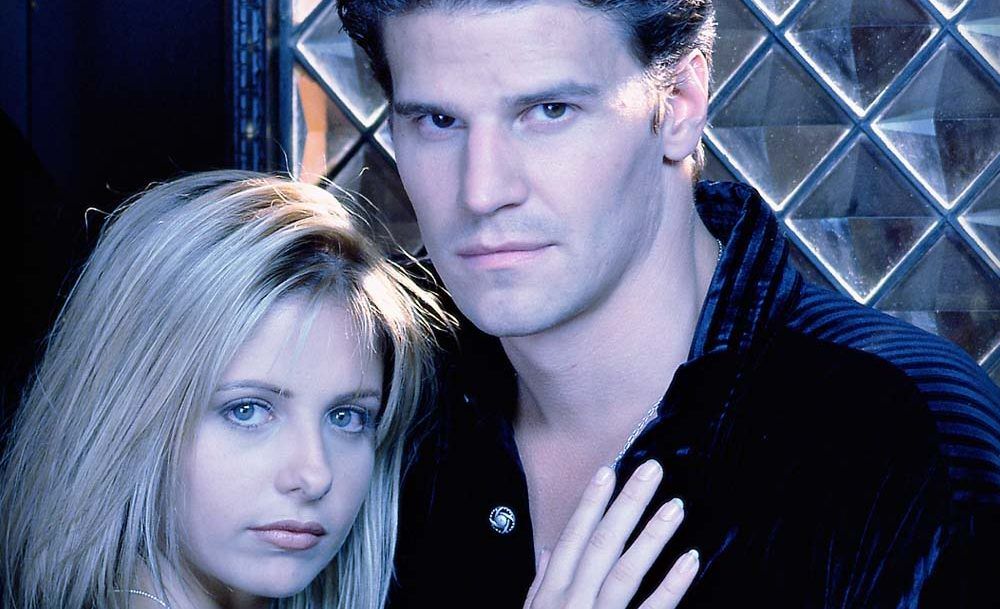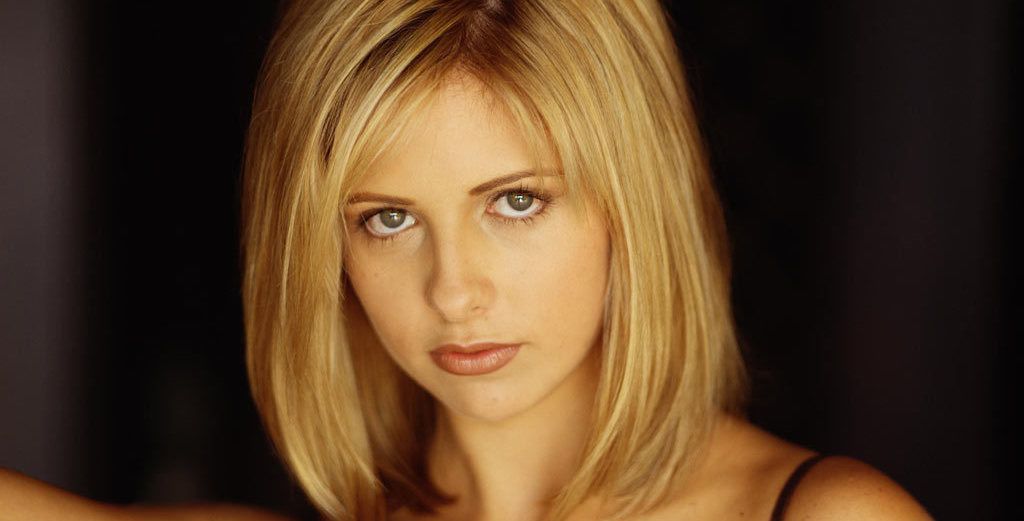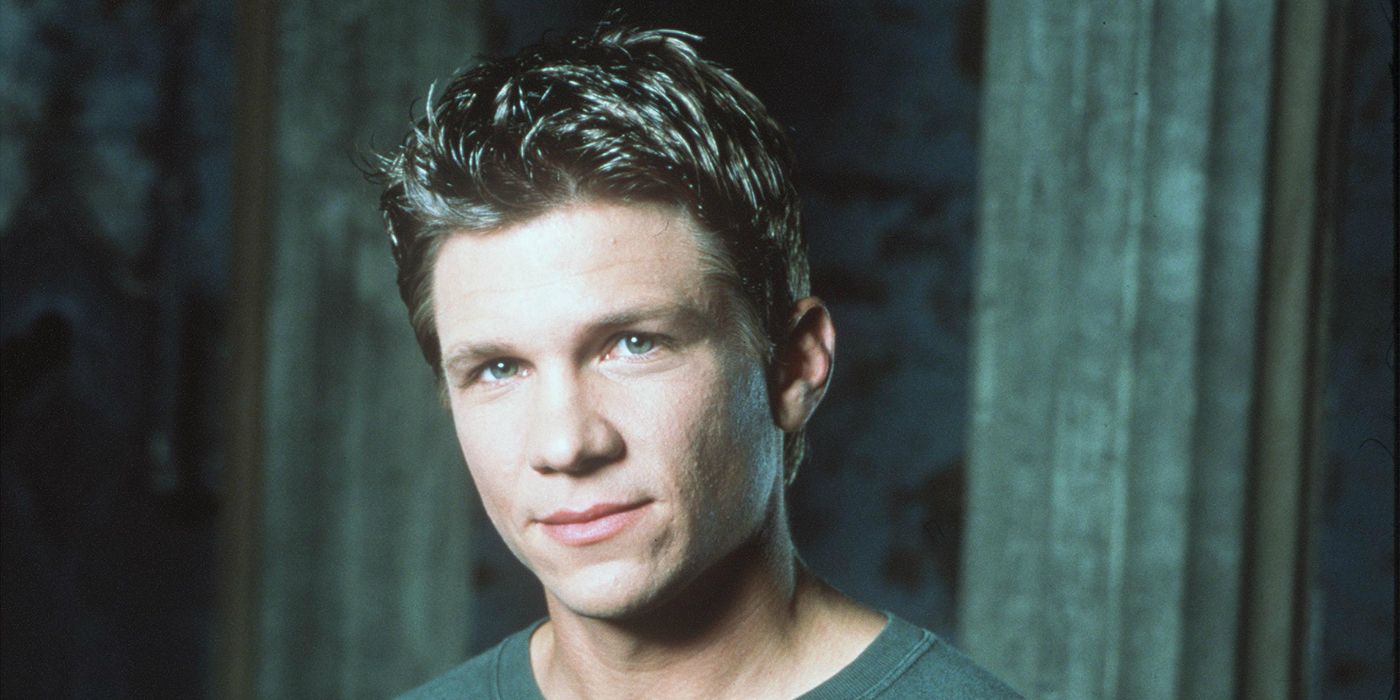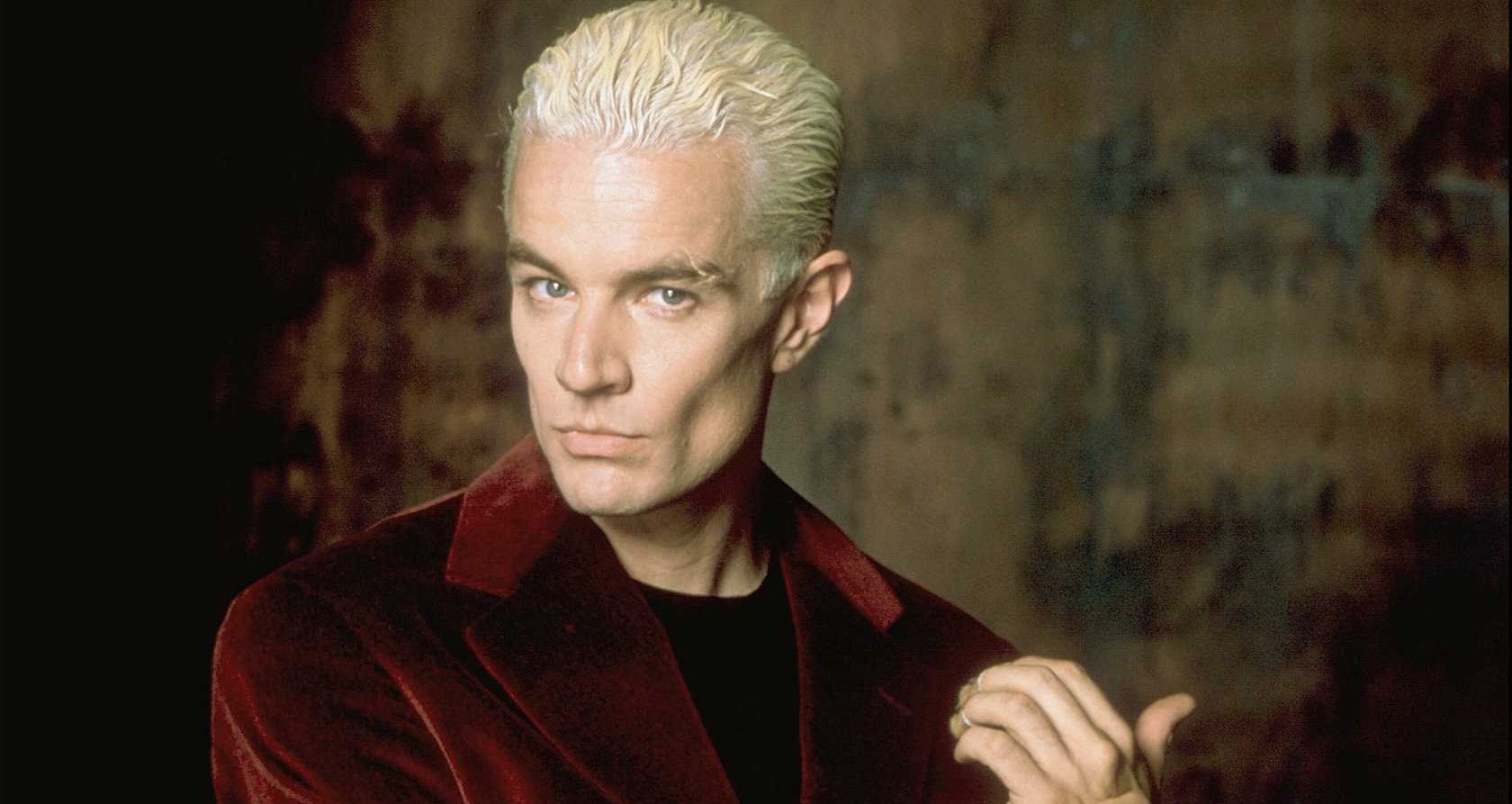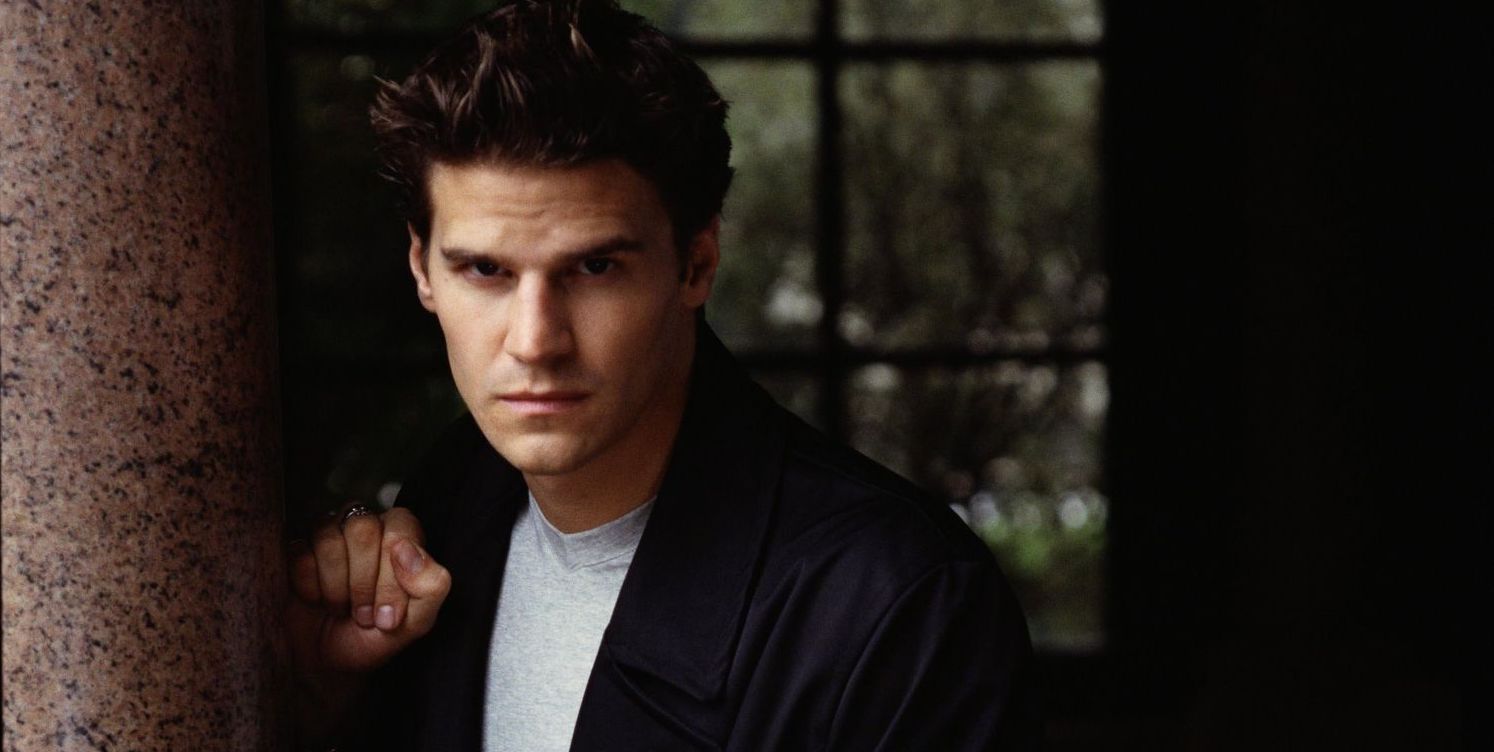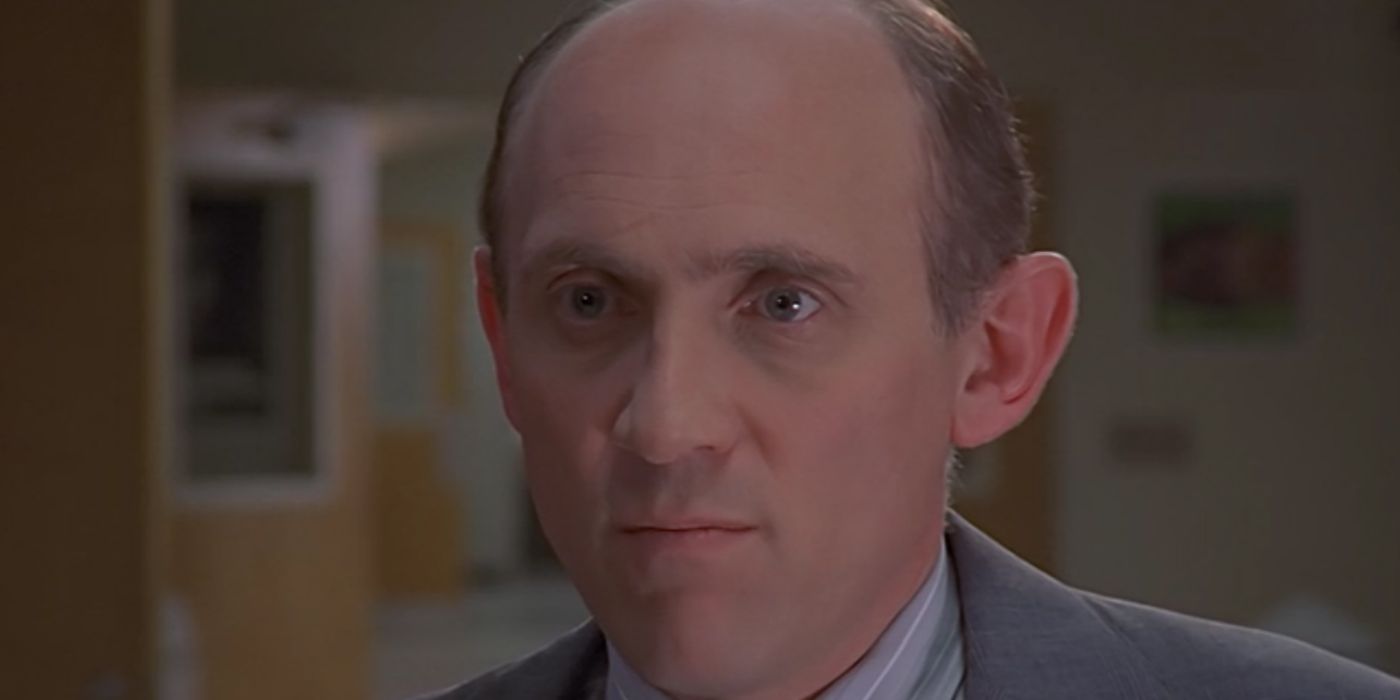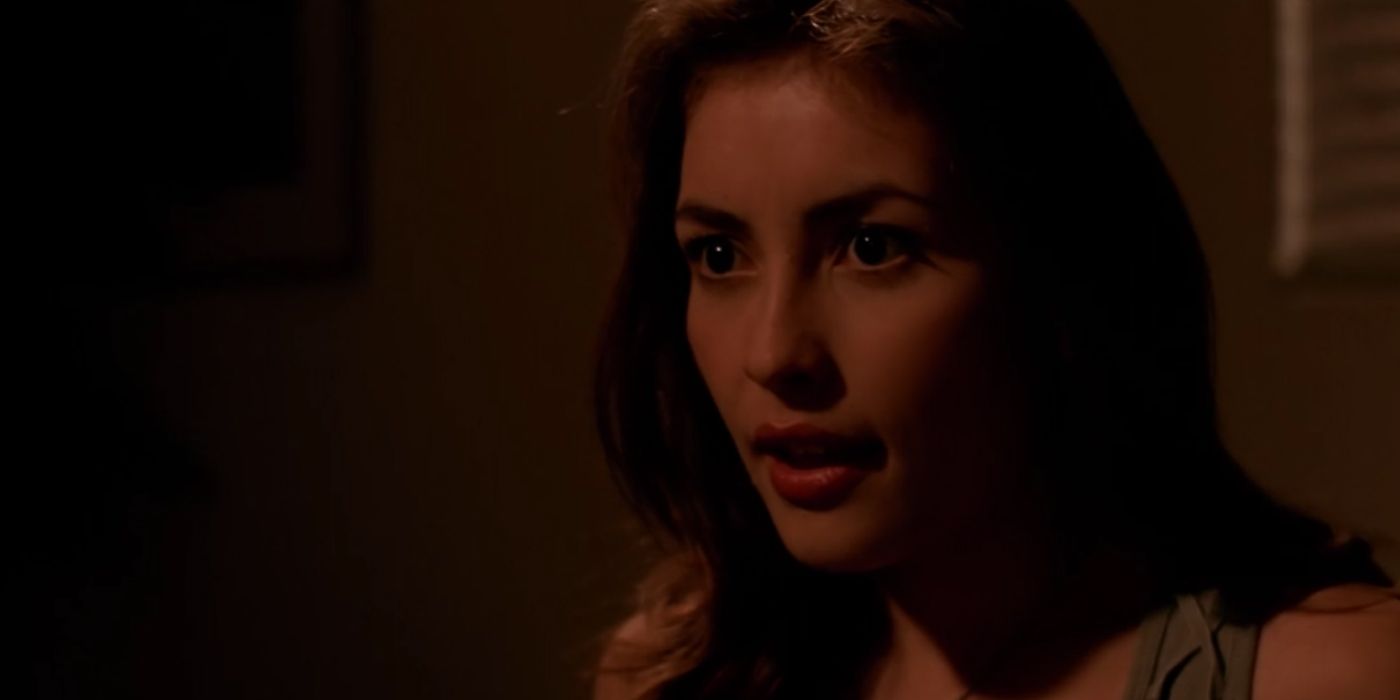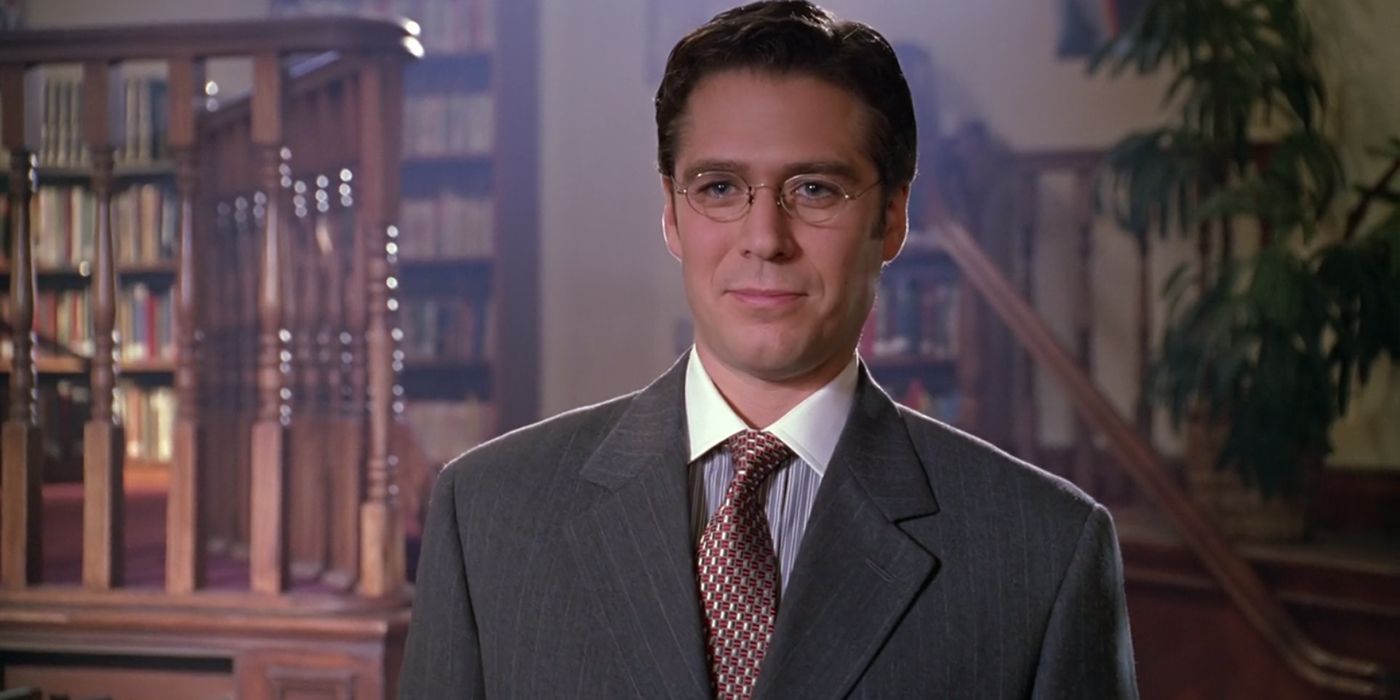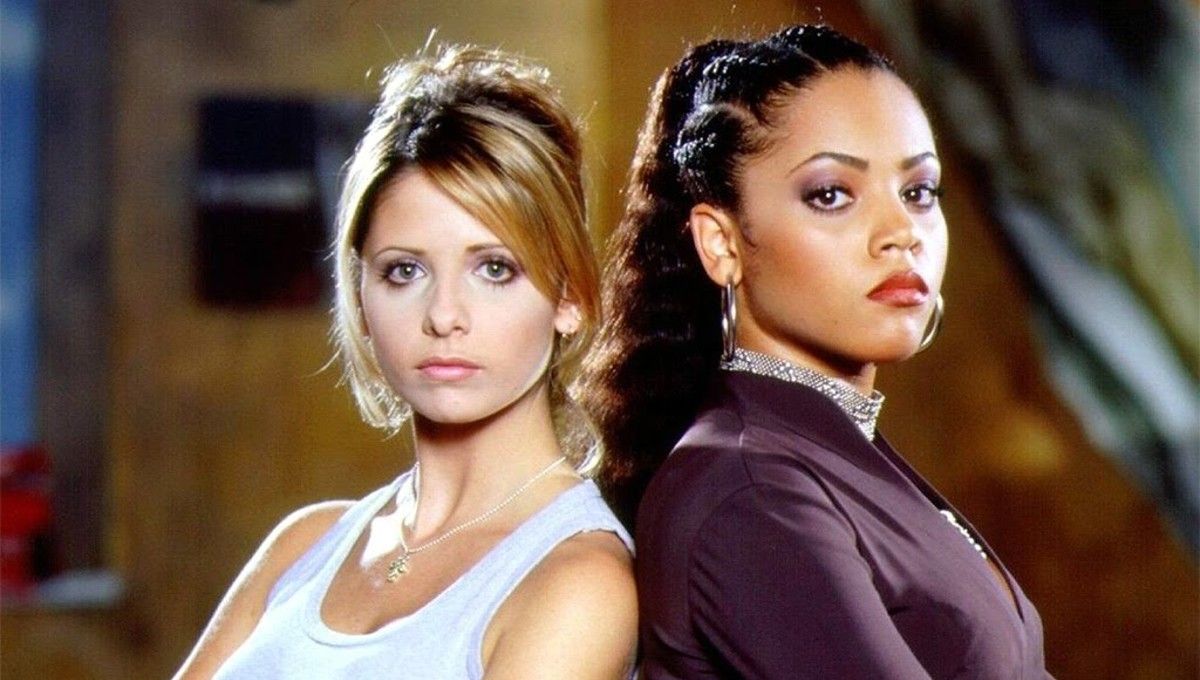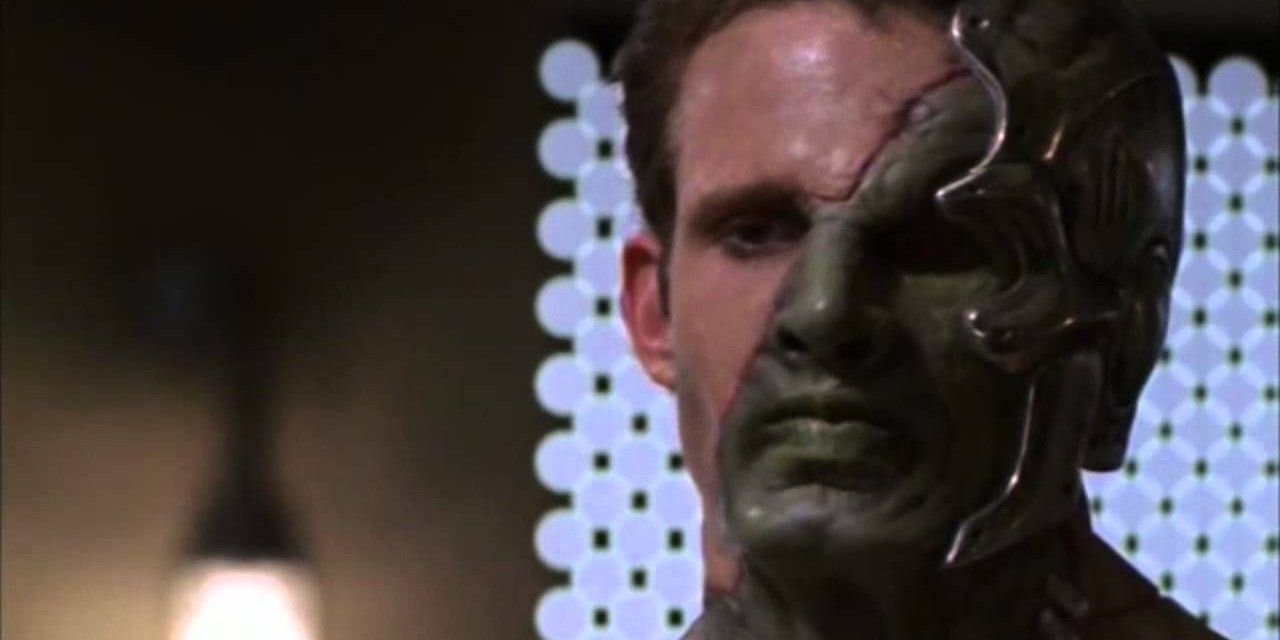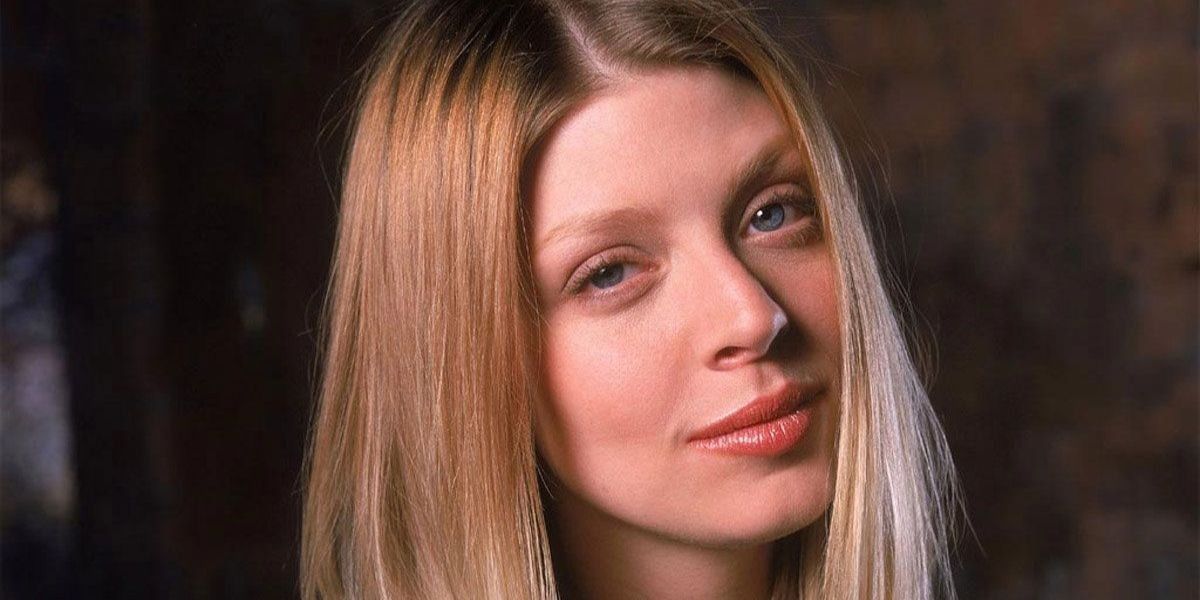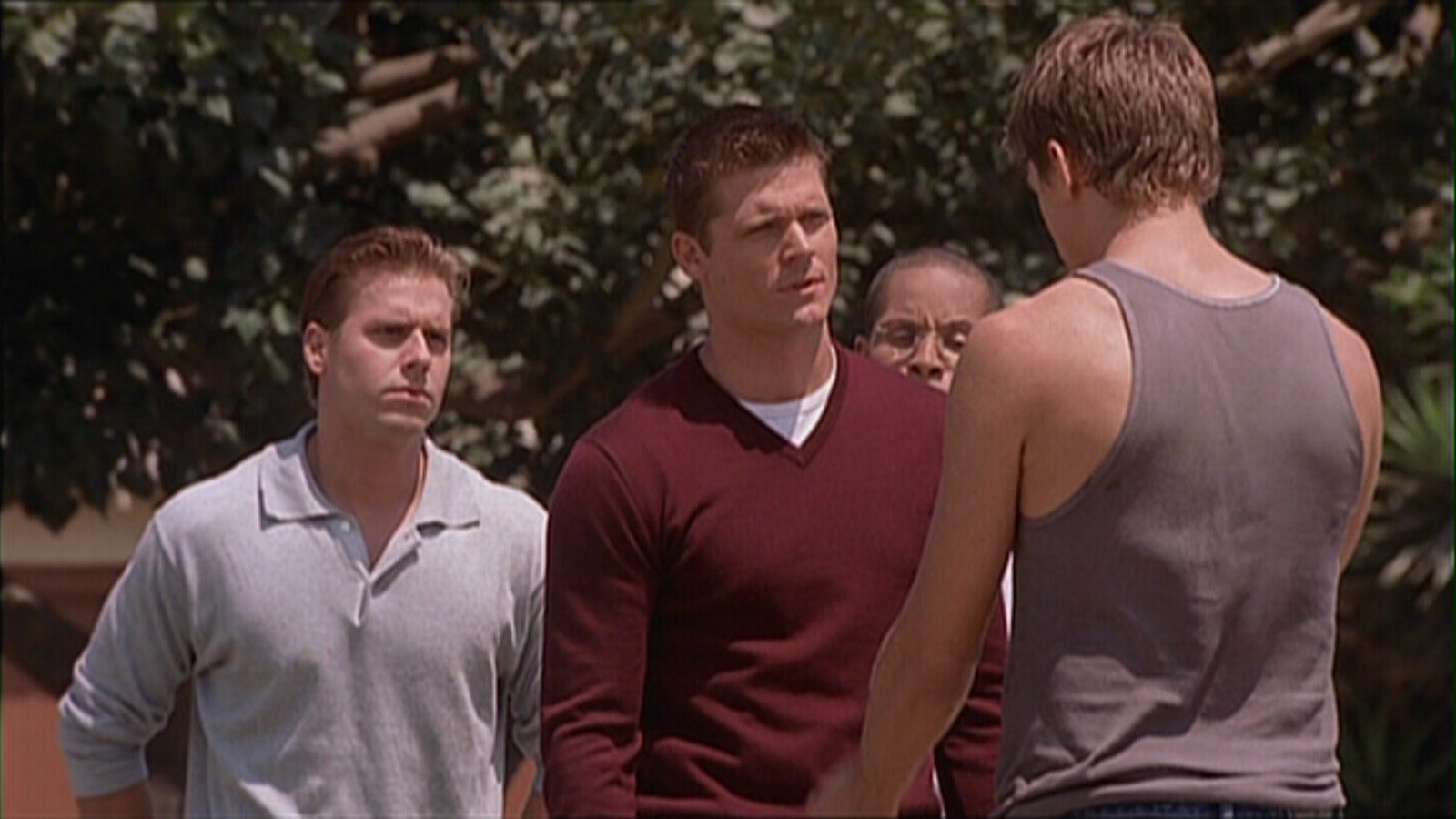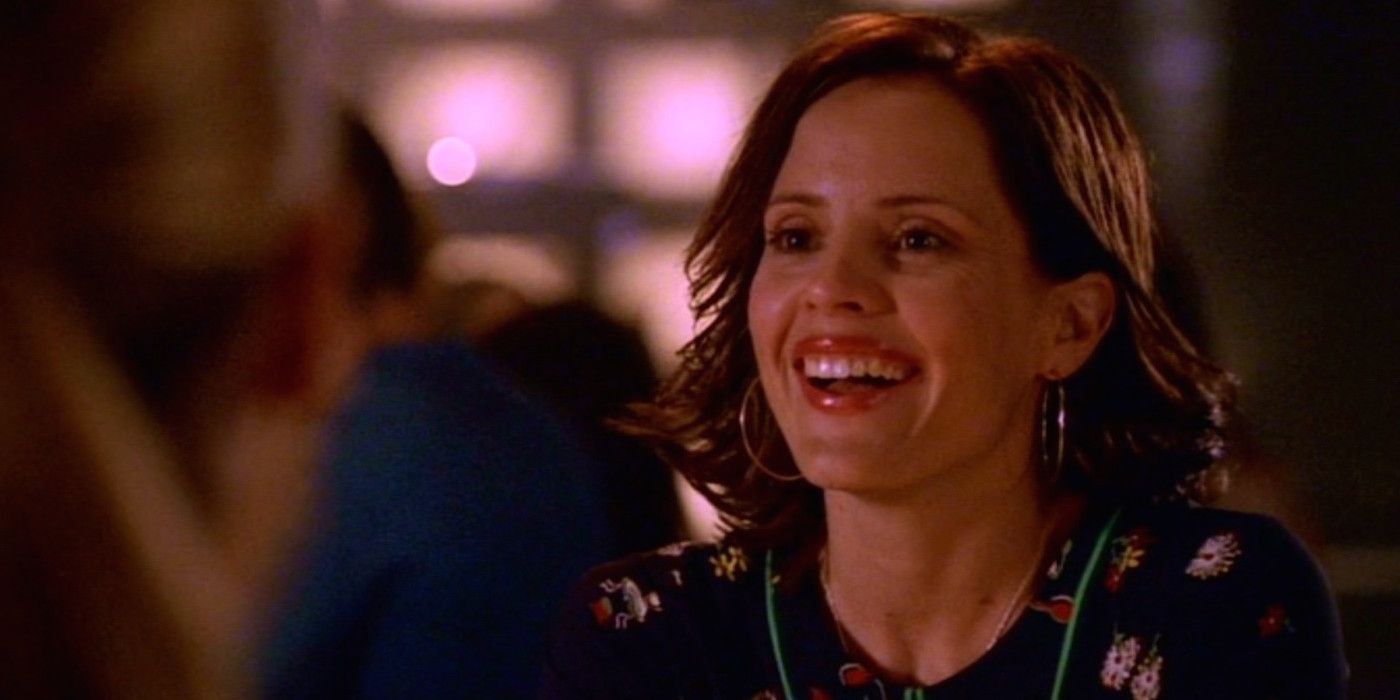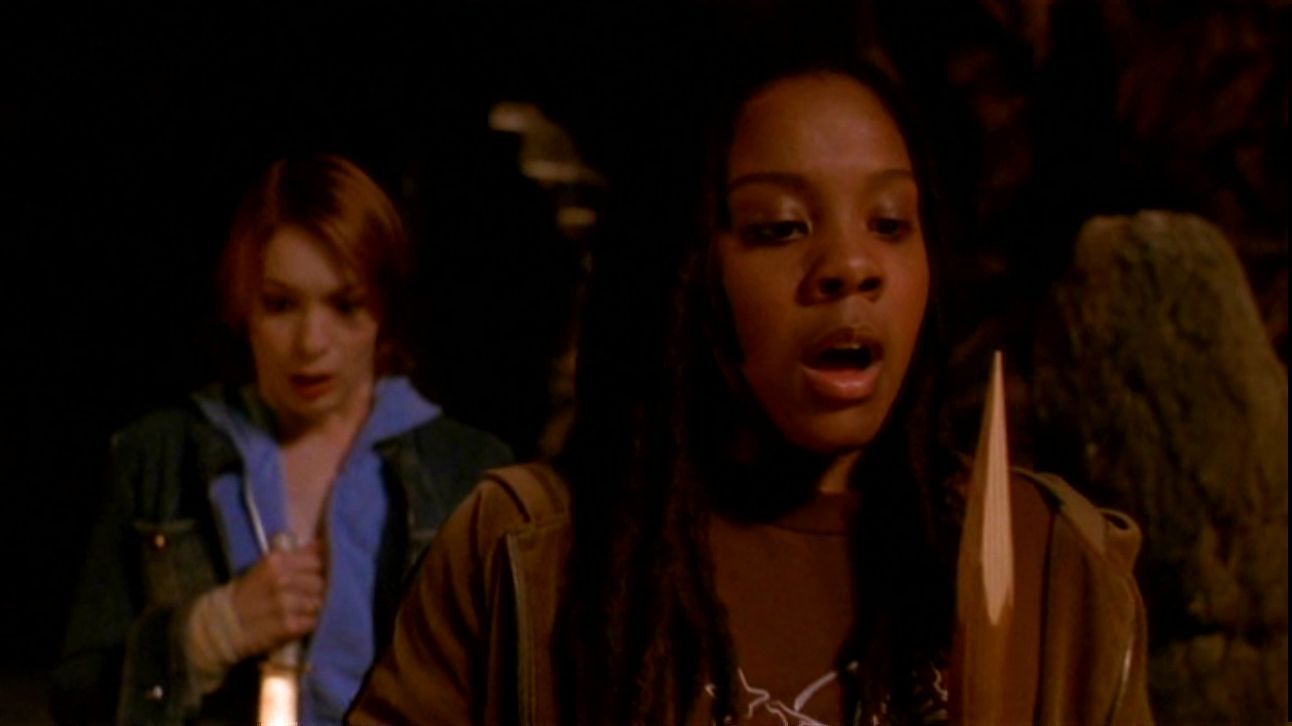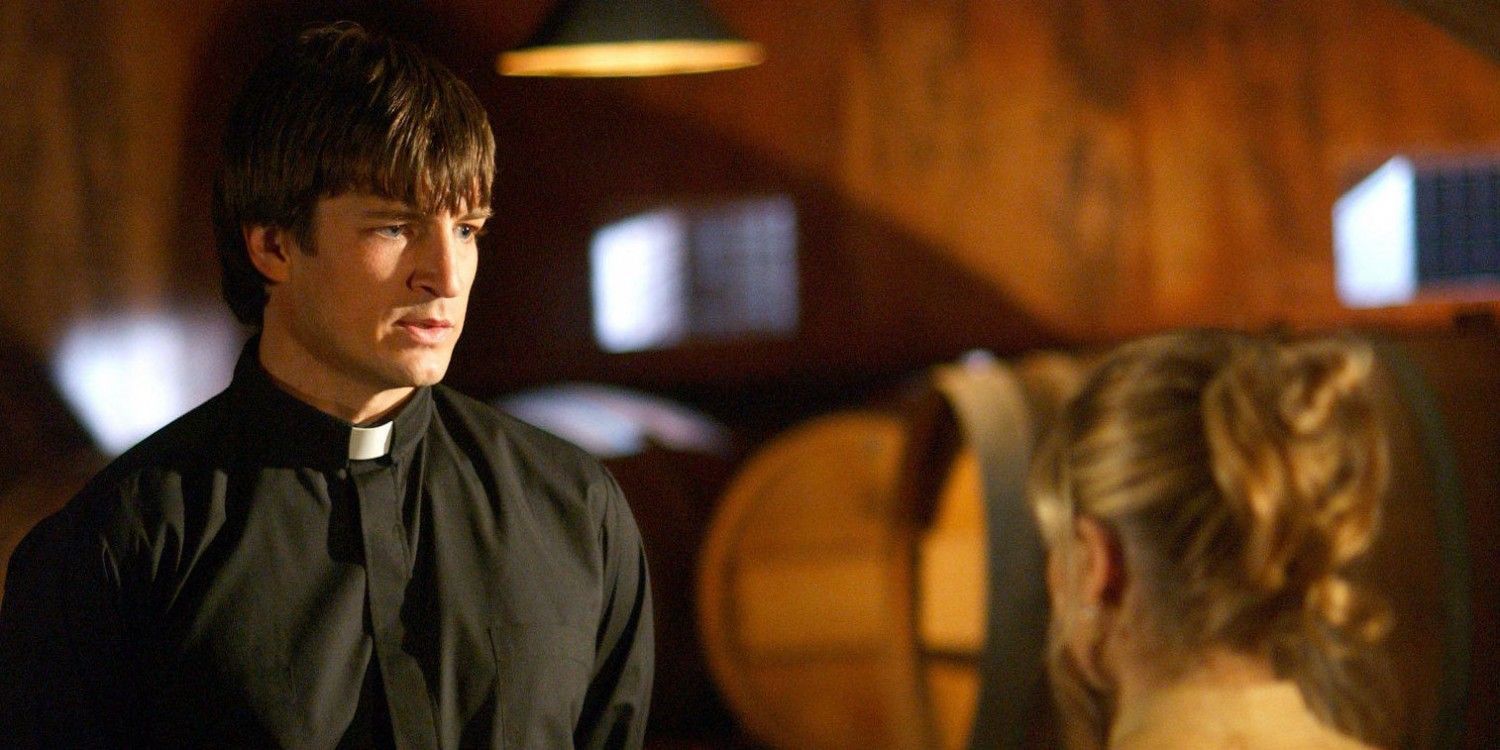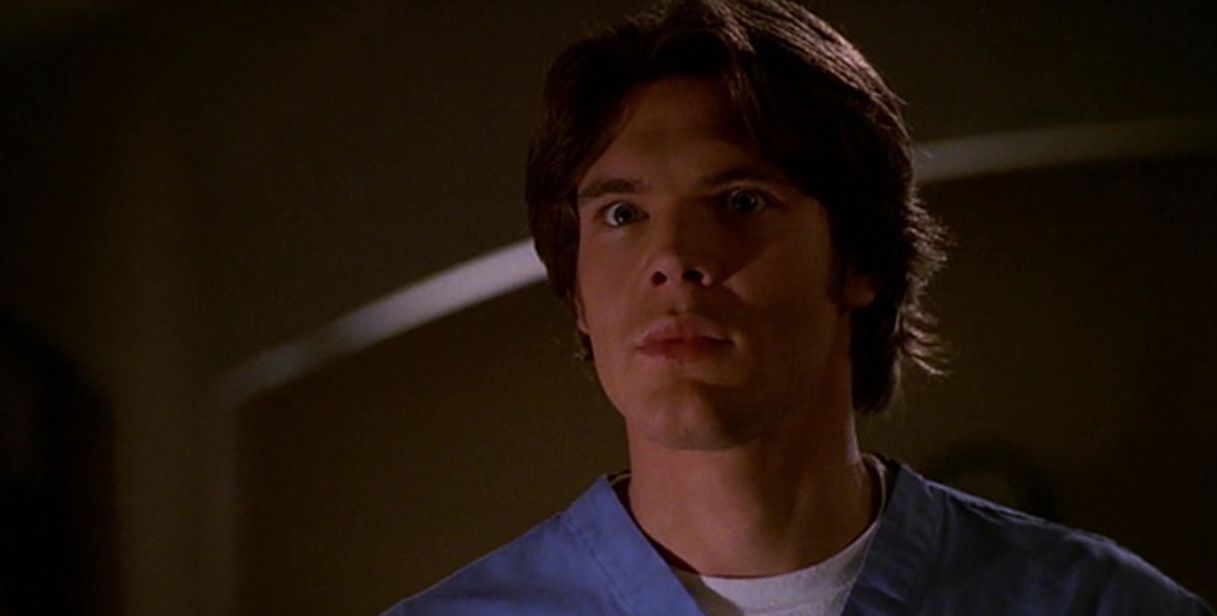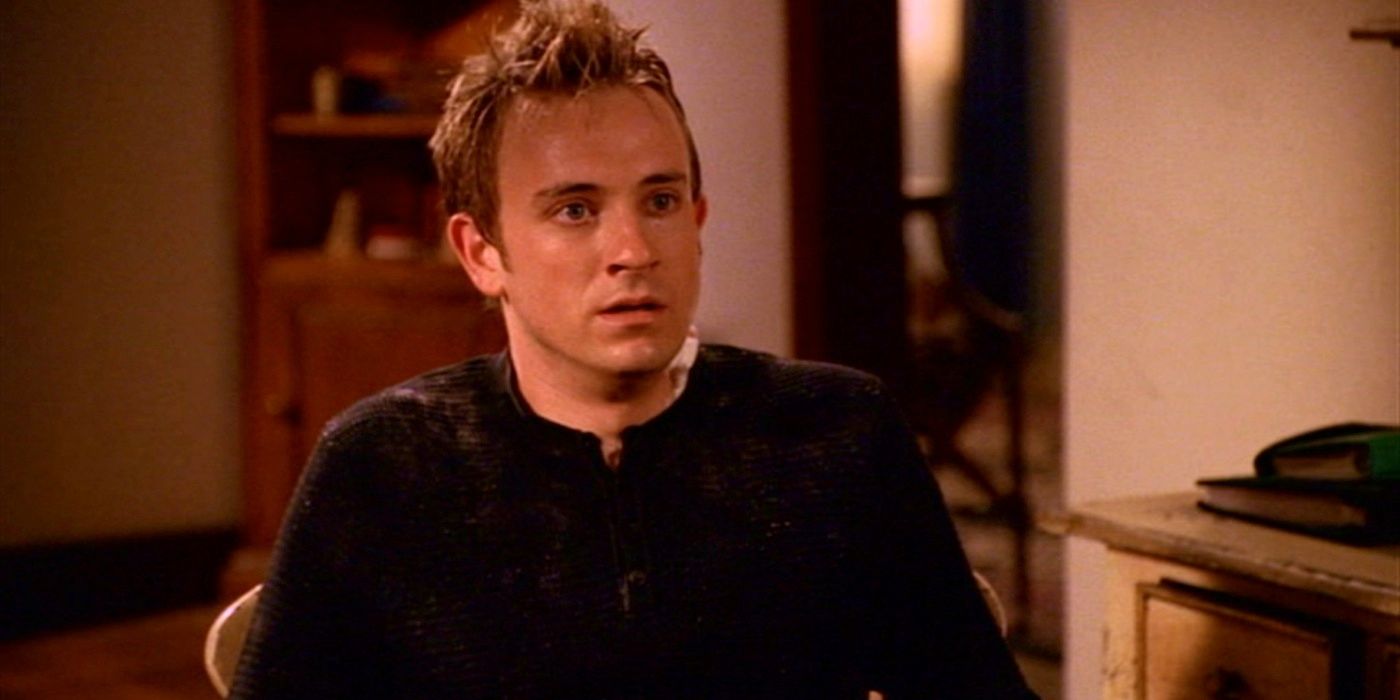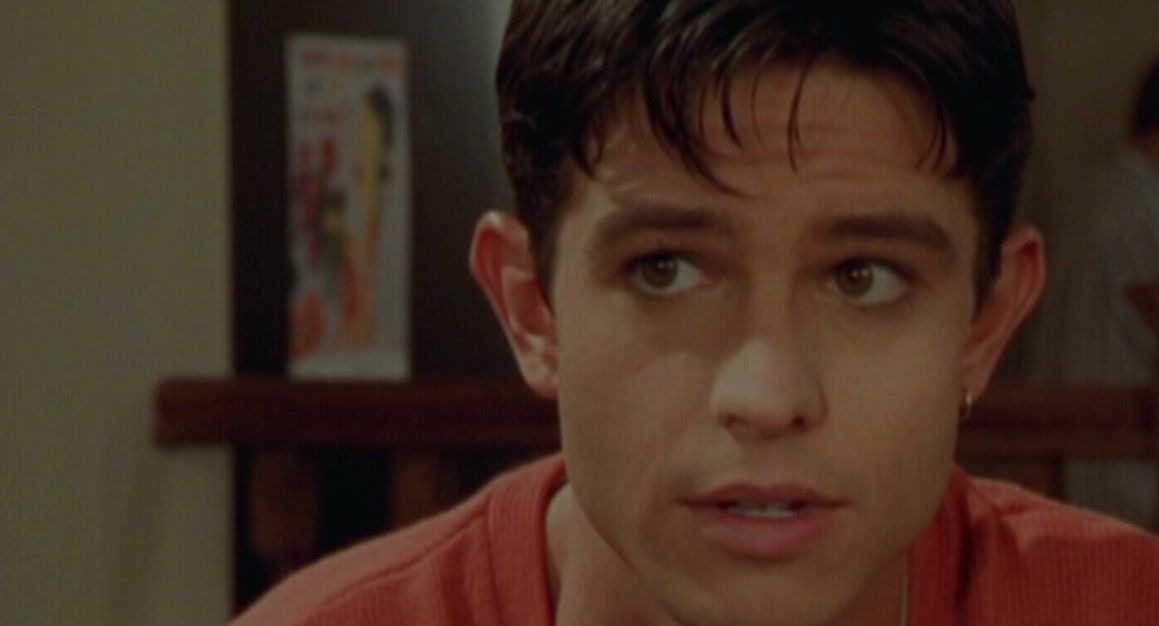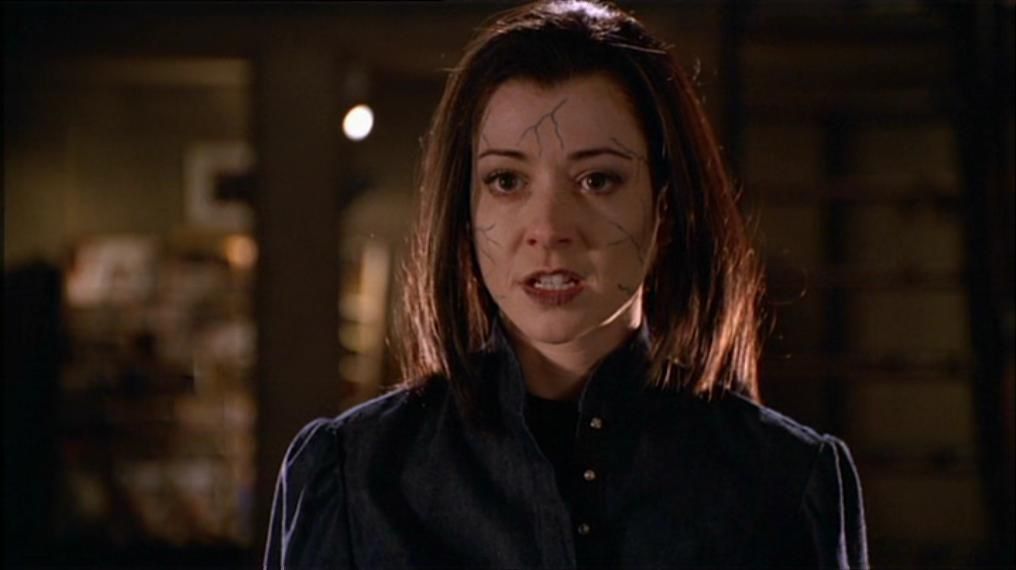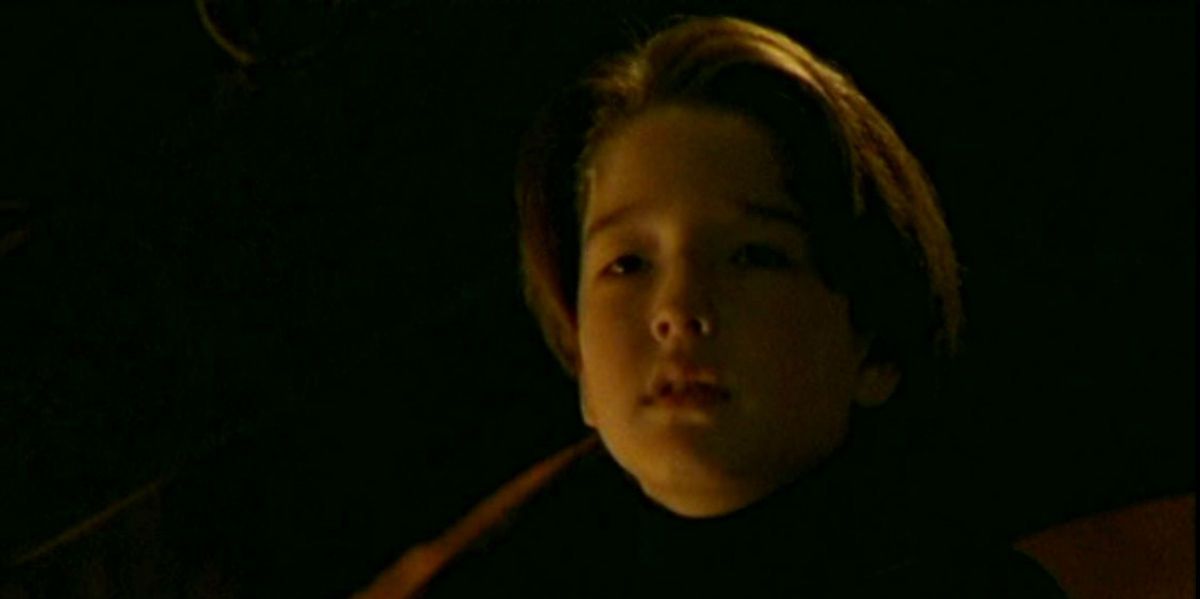Buffy The Vampire Slayer ran for seven seasons from 1997 to 2003. However, its significance as a landmark television series was well beyond what anyone could have imagined.
Originally starting out as a vapid horror/comedy flick (which creator Joss Whedon has since disavowed), the simple premise of the teenaged valley girl gifted with the powers to fight the forces of darkness proved to be a deep well of potent themes.
Buffy told stories – both standalone and serialized– about the burden of power, redemption, female empowerment, the transition from childhood to adulthood, often with the winning combination of a sardonic wit and an open heart.
The smart meld of comedy, tragedy, drama, romance, horror, and fantasy ensured Buffy would stake out (no pun intended) a special place in television history and fans’ hearts.
However, as with most television shows and movies, casting is key. Without certain actors, Buffy could’ve taken a much different trajectory, one far less rewarding for viewers and fans. However, it’s also true that other certain actors, while rarely terrible, sometimes fail to realize the potential of the material they’re given to work with.
With that said, here are the 12 Casting Decisions That Hurt Buffy The Vampire Slayer (And 13 That Saved It).
Saved: Sarah Michelle Gellar as Buffy
It’s as simple as this: if Sarah Michelle Gellar was incapable of carrying Buffy on her shoulders, the show would have failed.
As the leading woman of a series that often demanded a wild mix of tones and emotions from episode to episode, Sarah Michelle Gellar didn’t only succeed, but she made it look effortless.
Her Buffy was upbeat, honest, a natural leader – and was also isolated and prone to martyrdom.
Within Buffy was a mess of contradictions that were never truly resolved. In Gellar’s hands, these contradictions weren’t character inconsistencies but compelling story morsels.
Gellar gave life to a hero who, despite being gifted with a sharp wit and good looks and superhuman abilities, was consistently relatable and realistic.
Hurt: Marc Blucas as Riley
It’s a worn cliché in Buffy fandom circles to despise Riley Finn. As Buffy’s college guy beaux, he’s as unthreatening and vanilla as it gets.
He’s almost an anti-Whedon character. In a weird way, this makes him an automatically compelling foil for Buffy and her wacky pals.
However, actor Marc Blucas didn’t quite have the chemistry necessary for him to meld or rub up against Buffy and the Scoobies.
Certainly, his romantic scenes with Buffy were often a chore to sit through, which, despite the intentional normality of the character, could not have been the writers’ intent, as they experimented with giving him some edges in season 5.
Blucas bowed out of the show soon after ].
Saved: James Marsters as Spike
Spike is arguably the most developed character in the Buffy cannon. Originally meant to just be a Sid Vicious-esque vampire, Marsters proved so adept and compelling that he played many roles as Spike throughout Buffy: villain, trickster, romantic foil, and hero.
Because Marsters always managed to communicate the core of Spike – a being who was ruled by his emotions to a self-destructive degree – his Spike was never random or unknowable.
His working-class British accent is so convincing that hearing Marsters talk with his native Californian accent never sounds quite right.
Through his sheer talent, Marsters elevated a one-note Big Bad to the most complex character in Whedon’s oeuvre.
Hurt: David Boreanaz as Angel
This one’s controversial. David Boreanaz as Angel in his own spin-off series, Angel, grew extremely comfortable within the role of the tortured vampire with a soul.
His introversion and tendency to brood was both charming and slightly sad by that time and his comedic chops were razor sharp.
He was a fine lead in all five seasons of that show.
However, in the early seasons of Buffy, Boreanaz was exceptionally wooden and monotone.
One could rationalize this away as him just playing Angel as written. However, as a romantic interest, he often seemed to lack the passion and intensity that Sarah Michelle Gellar was bringing to the table.
Saved: Armin Shimmerman as Principal Snyder
Principal Snyder, though definitely a minor ancillary character in the grand scheme of the show, was often a largely unsung delight as the authoritarian principal who had it in for Buffy and the Scooby Gang.
Armin Shimmerman clearly revelled in Principal Snyder’s particular kind of anti-charm, and that kind of fun is infectious.
In every logical way, Snyder should be a downer and a bore, but thanks to Shimmerman’s gleeful performance, he was the uncomplicated love-to-hate character that Buffy was missing.
His final stand against the disorderly, undisciplined Mayor of Sunnydale, who ascended to the form of a pure demon on graduation day, was characteristically hilariously out-of-touch with reality.
Hurt: Iyari Limon as Kennedy
Oy, Kennedy. Buffy season 7 isn’t usually regarded as the show at its best, and one of the largely agreed upon problems was the addition of the Potential Slayers.
While thematically necessary, and even inspired, the execution left much to be desired.
Kennedy, the Potential who was bratty, shallow, and overly aggressive – and an unworthy partner for Willow – largely became the punching bag for fans expressing their disappointment with the final season – perhaps undeservedly so, perhaps not.
However, it’s hard to deny that Iyari Limon brings little to the role and doesn’t do much to balance out Kennedy’s negative character traits.
As she follows arguably the show’s purest love story – Willow and Tara’s – her faults rankle all the more.
Saved: Alexis Denisof as Wesley
If we’re putting Angel and Buffy together, Wesley Wyndam-Pryce, initially a Watcher meant to oversee Faith, is, next to Spike, the most finely developed character.
His transformation from insecure dweeb to ruthless fighter is remarkable.
However, in Buffy season 3, where he remains as an annoying foil for Giles, Alexis Denisof is still a joy.
Like Spike, he was originally meant to be terminated after a few episodes, but Denisof imbued Wesley with a curious sort of humour and sympathy.
There wasn’t much use for Wesley post Buffy season 3. However, Denisof was deemed to be a natural fit for Angel, and once he joined Angel Investigations, the show found its groove and Wesley got to spread his wings.
Hurt: Bianca Lawson as Kendra
Although she was a minor character who only appeared in a few episodes, Kendra the Vampire Slayer might be the most miscast character in all of Buffy.
On paper, Kendra is fine – she’s a serviceable if not terribly compelling contrast to Buffy’s rebellious and independent ways.
However, the miscasting is down to the last minute decision to grant the character a Jamaican accent. Lawson, an LA native, struggled mightily to deliver her lines with a stilted accent.
Whether the dialect was technically correct or not, it didn’t feel right. It was as if Kendra resided in the uncanny valley in every scene.
It was certainly for the best that the character was eliminated in favour of Faith.
Saved: Eliza Dushku as Faith
Eliza Dushku’s Faith was just what was needed to spice up the chemistry of the cast in Buffy season 3.
As the bad girl Slayer and later Big Bad’s lackey, Faith was alternately sympathetic and menacing. She was a lost soul with a tragically limited means of expressing her inner turmoil and insecurities.
Naturally, this made her a great fit during her brief tenures on Angel as well.
Dushku doesn’t have the most range in the world, at least judging by the interesting failure that was Dollhouse, but she fit Faith like a well-worn glove.
At one point a Faith spinoff was in the works, but it sadly never came to be.
Hurt: George Hertzberg as Adam
Adam was one of the few Buffy Big Bads who never really got his due. As a meld of machine, man, and demon, his fractured identity and inherent loneliness was ripe for some deep exploration.
Unfortunately, that didn’t come to be. Adam was just kind of a monotonous bore brought in at the season’s third act.
His plan to raise an army of demons was similarly generic and blah.
George Hertzberg, who was slathered under layers of unconvincing prosthetics and audio filters, was given little room to imbue Adam with any personality.
Simply put, Hertzberg didn’t quite have the screen presence to compensate for Adam’s shortcomings.
Saved: Amber Benson as Tara
Amber Benson as Tara was shy, awkward, and quietly supportive. Her meek and earthy vibe was a stark contrast to Buffy and Xander and Willow's big personalities.
However, as Willow’s girlfriend, Amber Benson shined in the role.
Her transformation from the shy one of the group in season 5 to confident mother figure in season 6 is one of the more underrated aspects of Buffy.
Although Tara wasn’t given much in the way of major story arcs, she was one of the first steps of positive LGBQTQ representation in television.
Benson was so good in the role that her final utterance – “Your shirt” – remains the most devastating scene in a show with more than a few heartbreaking scenes.
Hurt: Bailey Chase as Graham
How best to describe Graham, Riley’s blander than thou Initiative chum? The best way would be “military guy.” Graham was good at scowling and seeming serious, but not much else.
It can be supposed that he was there to just make Riley seem charismatic by contrast.
Bailey Chase’s stiff, bland performance as Graham contributed to the main problem with the Initiative: it just wasn’t very interesting.
Sure, it was plain to see that the show didn’t have the budget to support the rather ambitious idea of a government sponsored covert demon hunting squad, but it could’ve been a worthwhile addition to Buffy if it wasn’t populated by Grahams.
Saved: Emma Caulfield as Anya
Post season 3, Buffy had a few things to figure out. Among them was who would the new Cordelia, aka the brutally honest figure with an acerbic wit to match – someone to, in Anya’s words, “provide much needed sarcasm.”
As it turns out, Emma Caulfield was more than up the task as Anya, the ex-Vengeance Demon who had to reintegrate into human society.
Like Cordelia, she was paired up with Xander – only this relationship allowed both to flourish as characters.
Anya certainly evolved throughout Buffy, but the unique and joyful “I march to the beat of my own drum” aspect of her was never lost in Caulfield’s magnetic performance.
Hurt: Indigo as Rona
The Potentials were such a lacklustre addition that it’s necessary to talk about two of them on this list. Kennedy had more opportunities to grace, being given more story importance and all, but Rona is not to be forgotten.
Where Kennedy was confrontational and hostile, Rona was whiny and a drag.
Indigo played Rona with this permanent, unsympathetic expression of “I’m just about fed up, here” – and the development and performance went about as far as that.
The nail in her character’s coffin was when, during one of the series’ more infuriating scenes, the group kicks Buffy out of her own house and she sneers “Ding dong, the witch is dead.”
Saved: Nathan Fillion as Caleb
Adding Nathan Fillion is never a mistake. Buffy season 7 had a particular conundrum in that the Big Bad, the First Evil, was an incorporeal being who could, at worst, manipulate and hurt people’s feelings.
This doesn’t exactly make for the scariest threat ever.
Enter The First's chief minion Caleb, the misogynistic super powered priest. In Buffy’s domain, he was the ultimate expression of evil and malice.
As portrayed by Fillion, he was often both menacing and loathsome. This is some kind of feat, because Fillion is surely one of the most charming actors out there.
As Caleb, he provided the right kind of physical menace necessary – and he was a hoot.
Hurt: Charlie Weber as Ben
As Ben, the human half of the malicious god Glorificus, Charlie Weber had to get us invested in his tragedy – he was born only to be used and then discarded when Glory finds her way back to her hell dimension.
Clare Kramer as Glory got all the deliciously fun and evil moments to play, but Weber had to do some serious heavy lifting to make Glory/Ben a little more complex and human.
Unfortunately, Weber never really fleshed out Ben.
We knew he was a nice enough guy, and that he was a doctor, but that was it. When his life was claimed by Giles, it should’ve hit harder.
Saved: Tom Lenk as Andrew
With the Scooby Gang dourly fulfilling plot-heavy duties in the back half of season 7, and with the Potentials taking up a lot of space, Buffy was in dire need of a good dose of fun.
Enter Andrew, a member of the villainous trio from season 6, who was now a reformed good guy travelling the redemptive road.
As the comic relief ally, he didn’t just liven things up – his episode “Storyteller”, a meta-commentary of Buffy almost exclusively told from Andrew’s unreliable point of view, is one of the sharpest and most unexpectedly poignant episodes of Buffy ever produced.
Although he was surely one of the show’s goofier characters, his evolution was quietly remarkable and often hilarious.
Hurt: Jason Behr as Ford
Ford, Buffy’s old friend from way back, was a one-off character. However he was an important one.
In fact, prior to Angel’s turn, he was positioned as the sympathetic bad guy. With cancer slowly eating away at his insides, he formulated a plan to get bitten by a vampire, thereby curing himself.
“Lie to Me”, although important for Buffy’s character growth, is definitely one of the less memorable Joss Whedon written and directed Buffy episodes.
Some of this can be attributed to Jason Behr’s portrayal of Ford. It’s just impossible to buy that Buffy would ever be friends with this drip, and this deflates the moral dilemma somewhat.
Saved: Alyson Hannigan as Willow
A certain segment of fans point to season 6 of Buffy as its worst. Some, however, point to it as one of its greatest.
What almost everyone can agree on, though, is that Willow’s magic addiction storyline was somewhat fumbled, not least of which due to the unsubtle addiction metaphor barely holding together within the show’s established universe.
Yet, Alyson Hannigan knocks it out of the park as a fallen Willow, especially during the season’s last few episodes.
It’s a clear example of an actor elevating the material.
It’s difficult not to get chocked up when Willow lets go of her all-consuming rage and allows herself to grieve Tara’s loss.
Hurt: Andrew J. Ferchland as the Anointed One
Remember the Anointed One? The evil child vampire leader from the early days of Buffy? If not, the most memorable thing he did was burn to a crisp when Spike tossed him into a cage and elevated him into the harsh light of day.
While it’s unfair to put the blame entirely on Andrew J. Ferchland – he was, after all, just a kid – it’s a rare thing for a child to be able to pull off evil and intimidating.
Ferchland just didn’t have that kind of eerie presence.
Also, with Ferchland on the verge of a growth spurt, the entire idea seemed ill-conceived from the get go.

